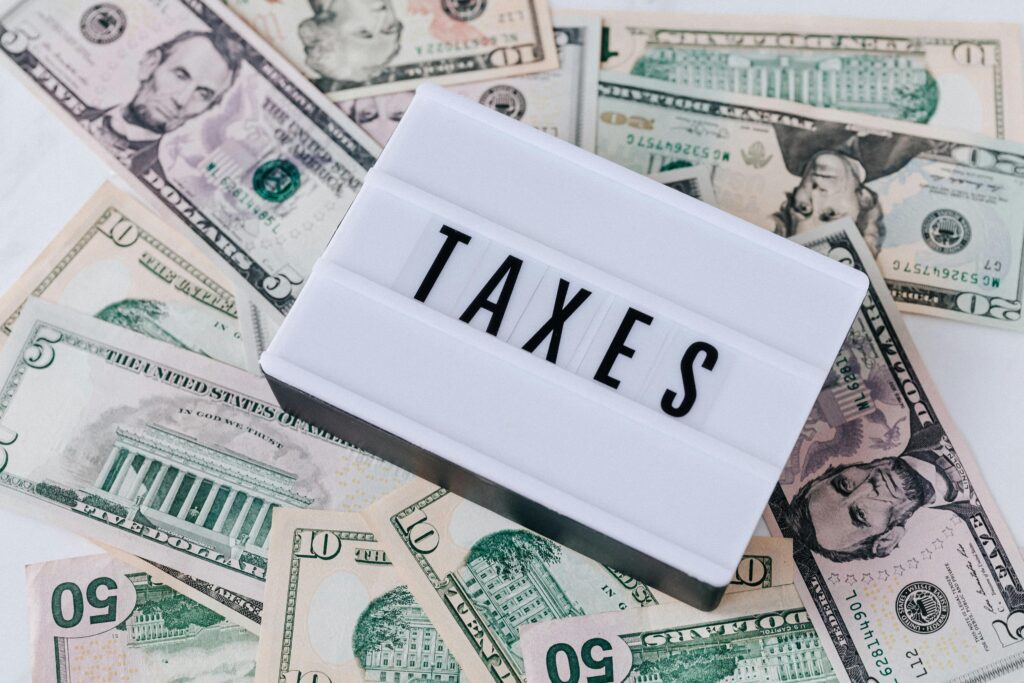Follow the 7 tips on how to be tax smart with your savings as listed later in this article to keep more of your money. According to the IRS, you must pay taxes on all the interest you receive, from the first dollar.
The IRS will send you a 1099 if you earn more than each year. If you earn less, they won’t send you the form. However, you still need to report all your earnings from savings. Some interest is tax-deferred which means you won’t pay taxes until you withdraw it. However, you will still pay taxes.

Maximizing your savings isn’t just about setting aside money regularly; it’s also about being smart with how you manage and invest those funds to minimize tax liabilities. Tax-efficient strategies can significantly enhance the growth of your savings over time. Here are seven tips on how to be tax smart with your savings.
Here Are the 7 Tips on How to Be Tax Smart with Your Savings
Utilize Tax-Advantaged Accounts

Take advantage of accounts that offer tax benefits:
- 401(k) and 403(b) Plans: Contributions to these retirement accounts are made with pre-tax dollars, reducing your taxable income for the year. Additionally, the funds grow tax-deferred until withdrawal.
- Roth IRA and Roth 401(k): Contributions are made with after-tax dollars, but withdrawals in retirement are tax-free, including earnings, provided certain conditions are met.
- Health Savings Accounts (HSAs): Contributions are tax-deductible, the account grows tax-free, and withdrawals for qualified medical expenses are also tax-free.
Consider Tax-Efficient Investments
Choose investments that offer tax advantages:
- Municipal Bonds: Interest income from municipal bonds is typically exempt from federal income tax, and may also be exempt from state and local taxes if you live in the issuing state.
- Index Funds and ETFs: These investments tend to be much more tax-efficient than actively managed funds due to lower turnover rates, which means fewer taxable events.
Easy loans at BadCreditLoans.com
Make the Most of Tax Loss Harvesting
Offset gains with losses:

- Sell Losing Investments: By selling investments that have decreased in value, you can offset gains from other investments. This strategy can reduce your taxable income and is another great way on how to be tax smart with your savings.
- Carry Over Losses: If your losses exceed your gains, you can carry over the excess losses to future tax years, providing ongoing tax benefits.
Plan for Required Minimum Distributions (RMDs)
Understand and plan for RMDs from retirement accounts:
- Starting at Age 73: You must begin taking RMDs from your traditional IRAs and 401(k) plans at age 73. These distributions are taxed as ordinary income.
- Strategize Withdrawals: Consider your tax bracket and withdraw just enough to avoid moving into a higher tax bracket. This can help you manage your tax liability.
Use Tax-Deferred Annuities
Consider tax-deferred annuities for additional retirement savings:
- Growth Without Immediate Taxation: Earnings on tax-deferred annuities are not taxed until you begin making withdrawals, which can be a useful strategy for long-term savings.
- Flexible Payout Options: Annuities often offer various payout options, allowing you to manage your income and taxes effectively in retirement.
Open a Health Savings Account
- If you have a lot of health care costs, one way to shield your money is to put pre-tax money into a health savings account that you then use for your health care payments.
Understand the Rules of Your State
- Understand the Rules of Your State. Where you live has different rules than the federal government does. Always look up your state tax rules before investing and after investing, so that you know how to avoid paying more than you must.
Since tax laws change frequently, it’s highly imperative that you talk to your own financial advisor before making any decisions about whether you owe taxes or how to defer them to a later date. You want to pay all the taxes you owe, but no more than you owe.
If you can postpone something, you should – with one exception: receiving tax-free cash. Remember that cash today is always worth more than cash tomorrow.
Follow the 7 Tips on Being Tax Smart with Your Savings as listed above and you’ll be able to enjoy more of your hard earned money.

